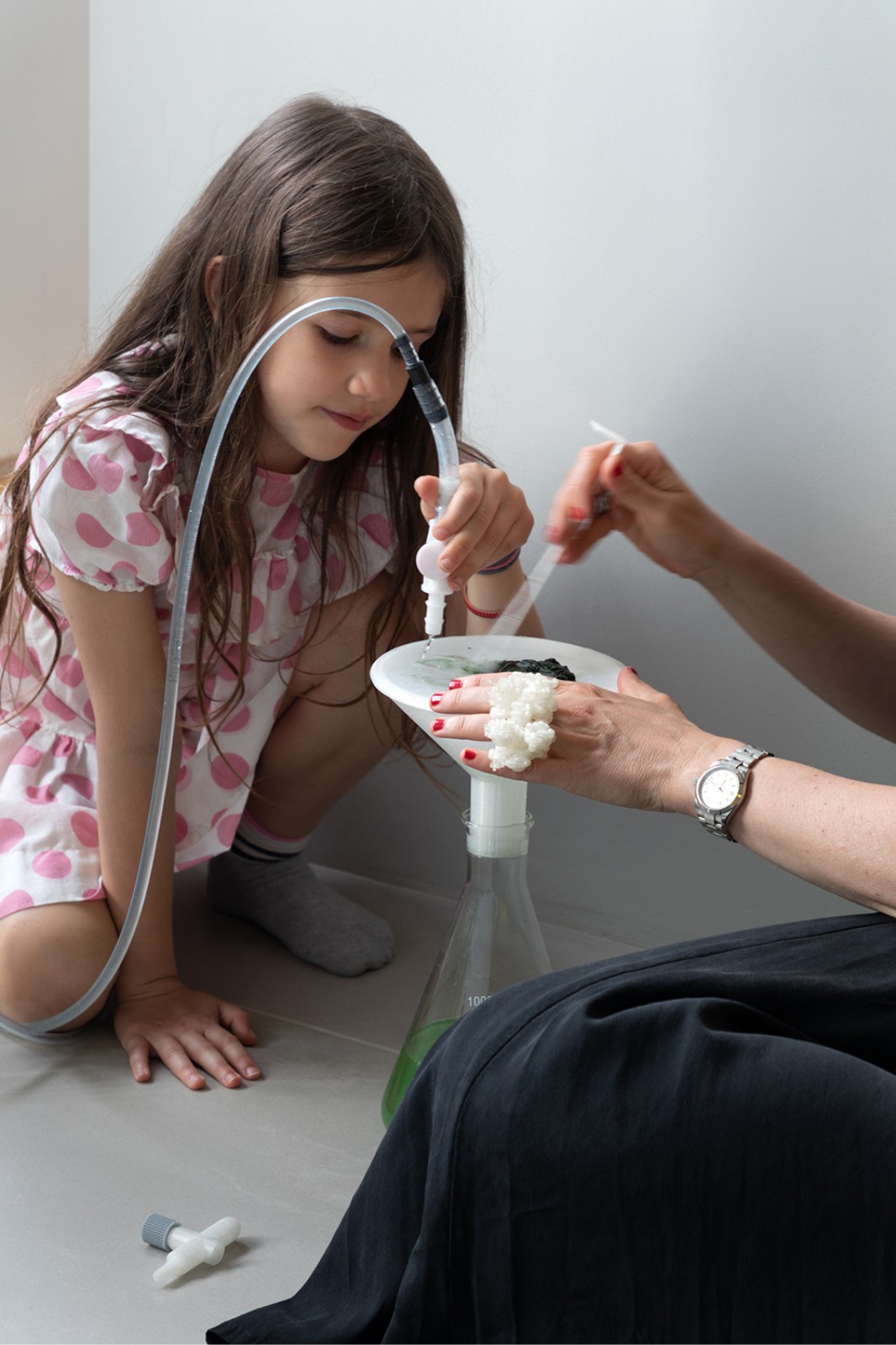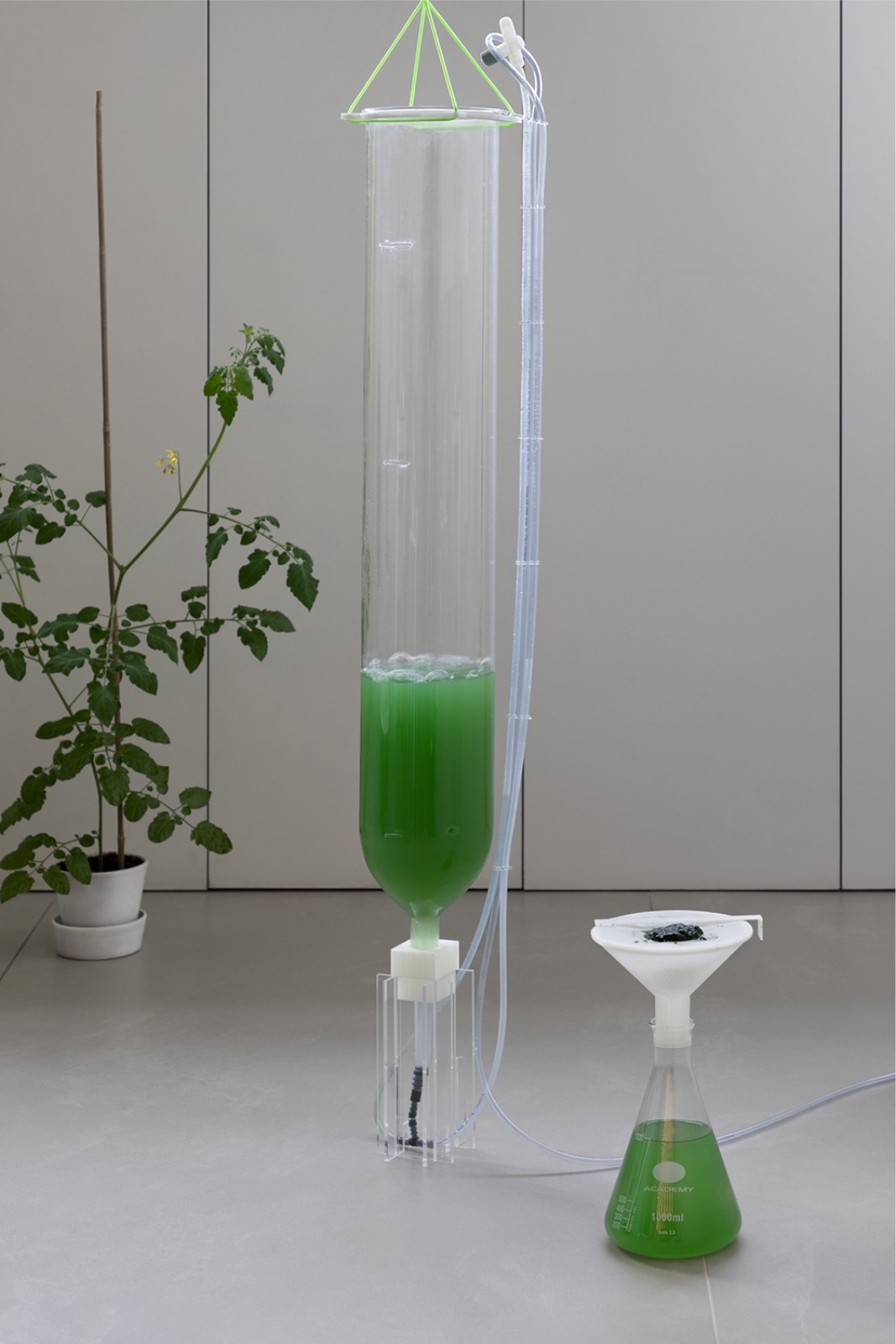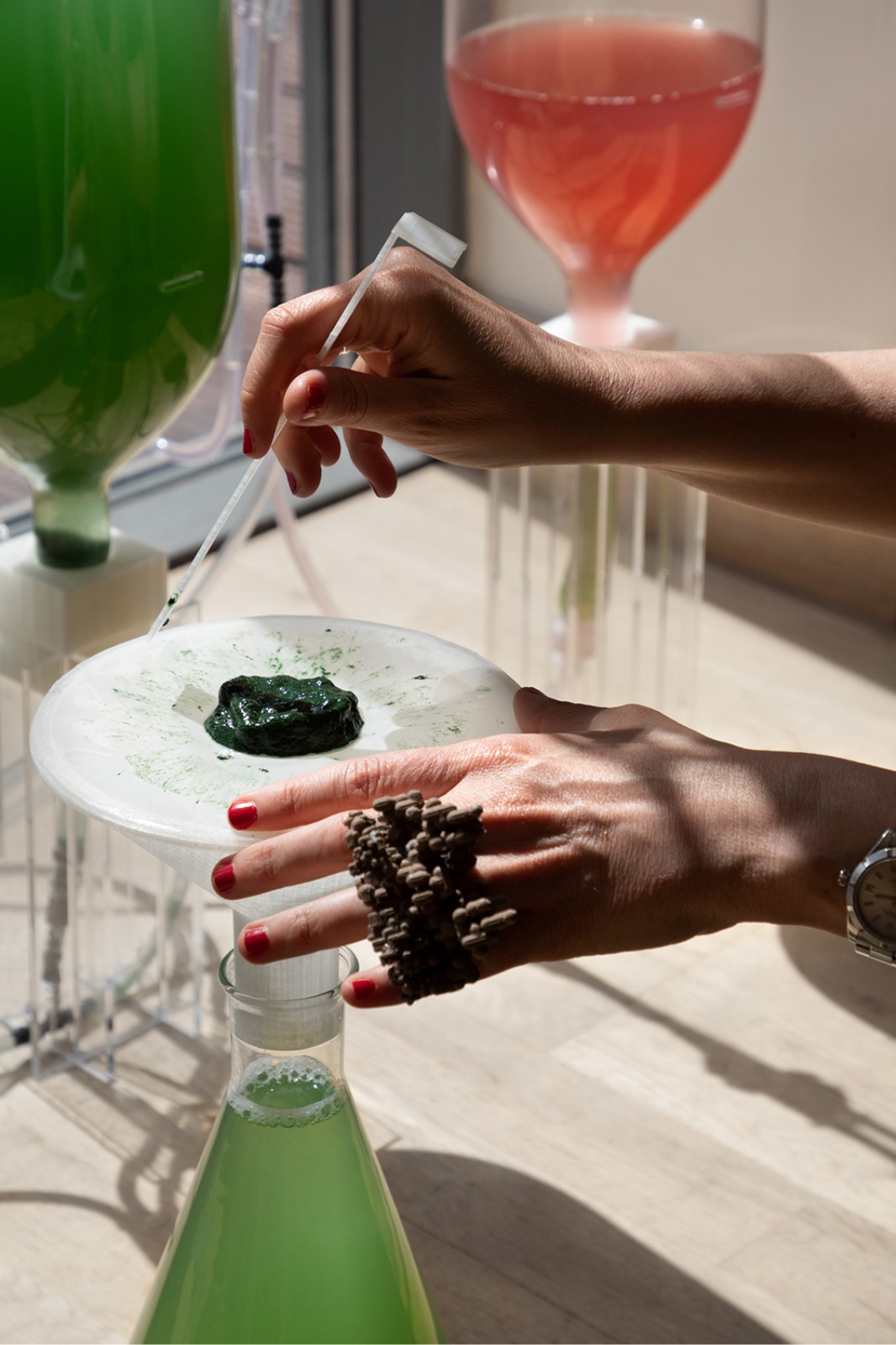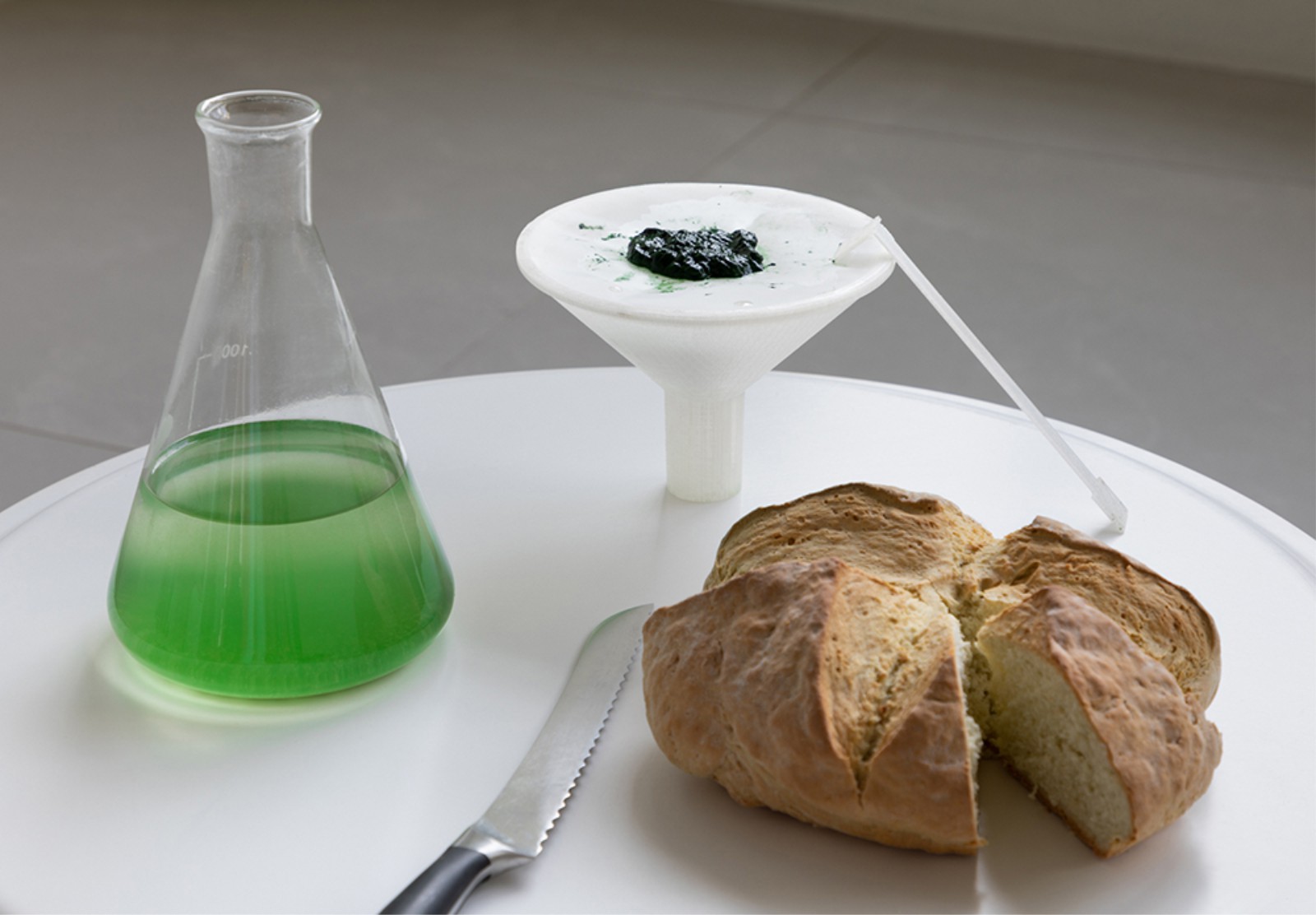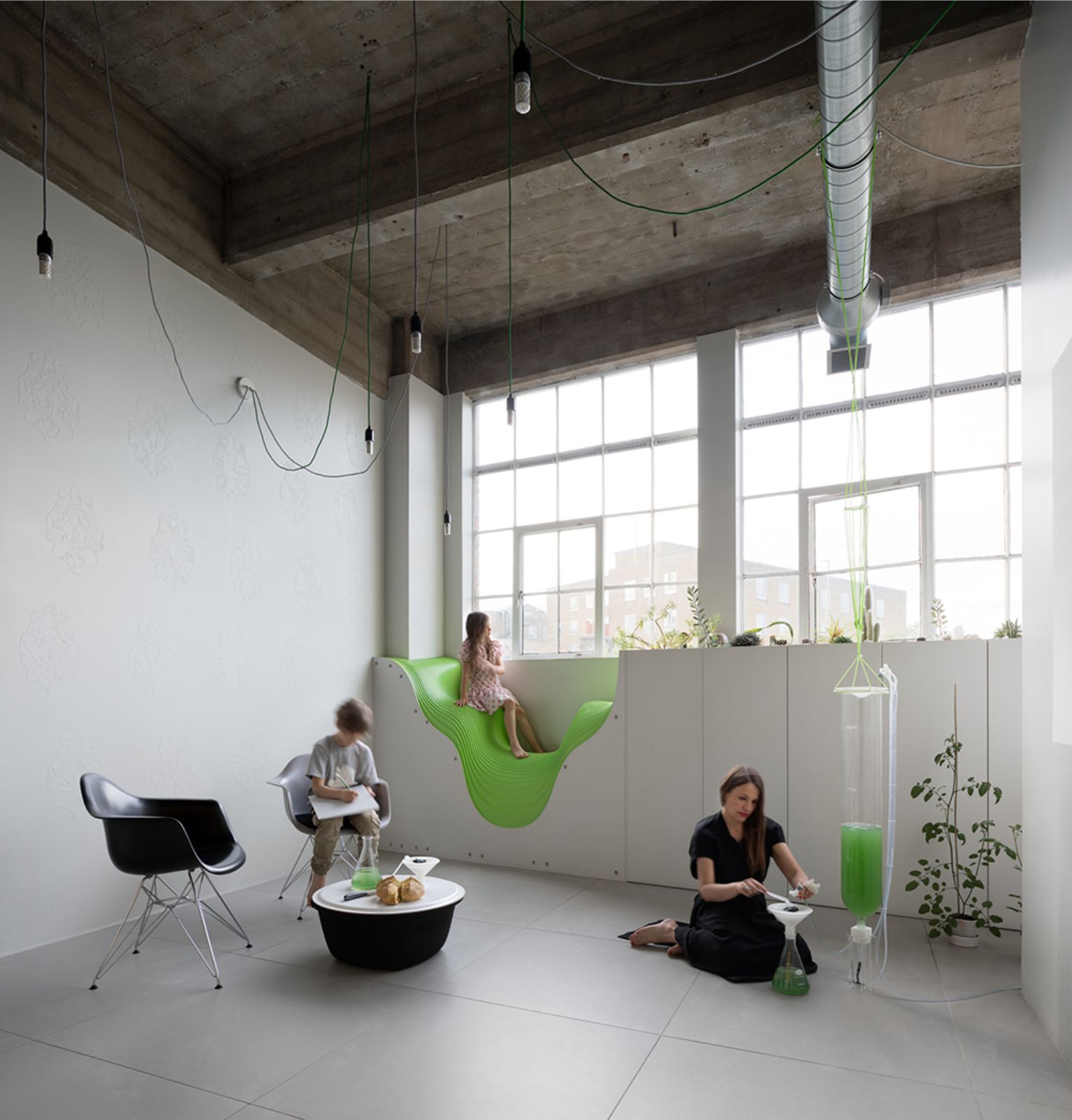ecoLogicStudio has devised BioBombola, a pioneering project that invites individuals, families and communities to cultivate a domestic algae garden – a sustainable source of vegetable proteins. BioBombola absorbs carbon dioxide and oxygenates homes more effectively than common domestic plants while fostering a fulfilling daily interaction with nature.
During the recent weeks of lockdown, the designers cycled everyday with their two children, Giacomo and Lulu, between their home in Broadway Market and their bio-lab in Hackney Wick (in London’s East End) while the kids were engaged in the home-schooling programme. Spontaneously, they involved the whole family in the algae cultivation and in the collection of data on air pollution.
“The kids love harvesting Spirulina. We make vegetable protein bread every week with it now,” says Claudia Pasquero. Following this experiment, ecoLogicStudio decided to develop the concept further and to create a minimal kit for indoor cultivation that includes the BioBombola – a harvesting kit for simple collection of fresh Spirulina ready to be consumed, a nutrients bag and a starter batch of Spirulina cells.
Each BioBombola is composed of a single customized photobioreactor, a one metre tall lab grade glass container, filled with 15 litres of living photosynthetic Spirulina strain (a type of cyanobacteria, which is a family of single-celled microbes that are often referred to as blue-green algae) and culture medium with nutrients. It also includes an air piping system and a small air-pump that constantly stirs the medium.
The gentle bubbling keeps the algae afloat, aids oxygenation and produces a calming sound that emanates with the fresh oxygen in the surrounding environment. The photobioreactor absorbs the equivalent of two young trees in CO2 while producing the same amount of oxygen as seven indoor plants. The harvest is a simple and entertaining process that can be performed several times per week, collecting up to seven grams of Spirulina per day, which is the daily recommended intake for a family of four.
“We believe that this product will contribute to re-design some of the logic that led us to the current health crisis. If we, collectively, transform air pollutants into highly nutritious aliments there will be fewer opportunities for viruses to exploit unsustainable food supply chains and for polluted atmospheres to reach and attach to us.” affirm Claudia Pasquero and Marco Poletto by ecoLogicStudio.



